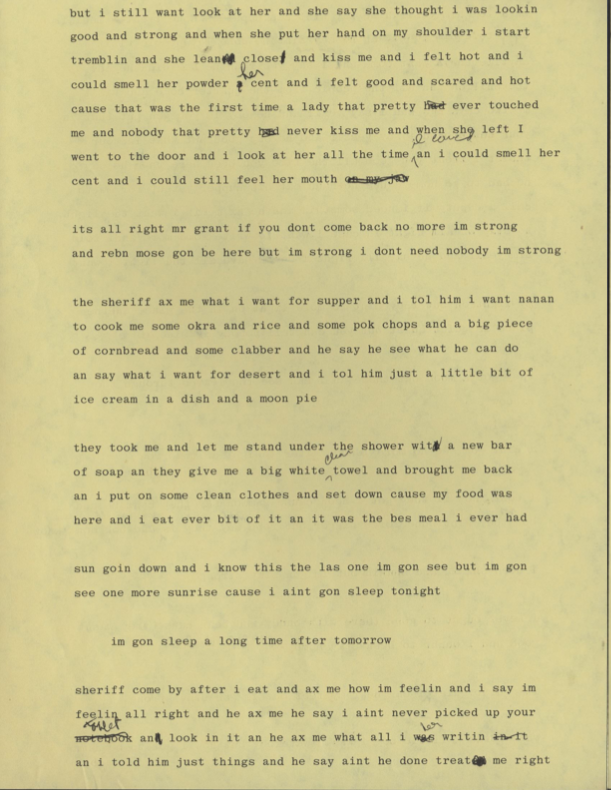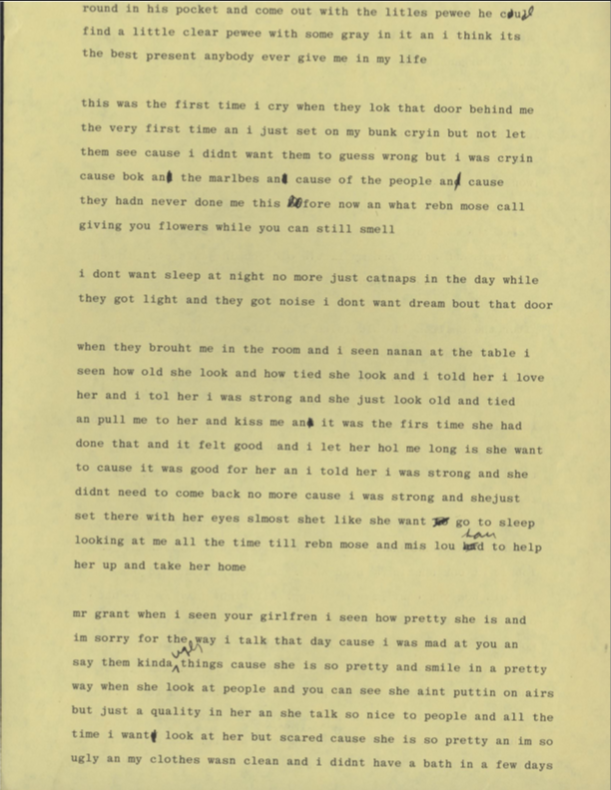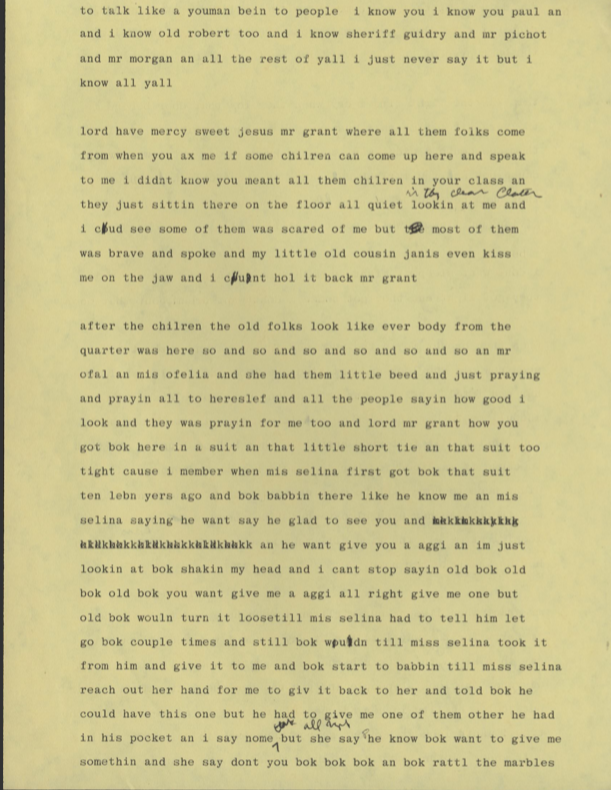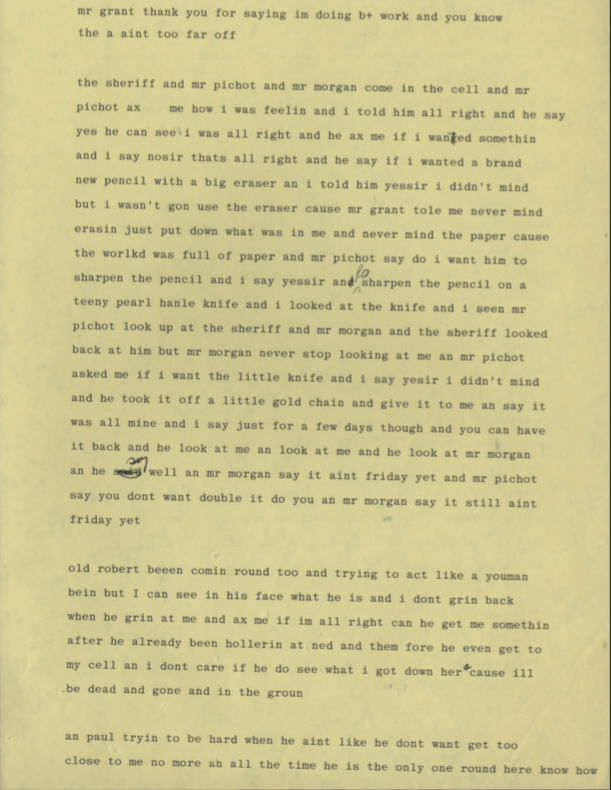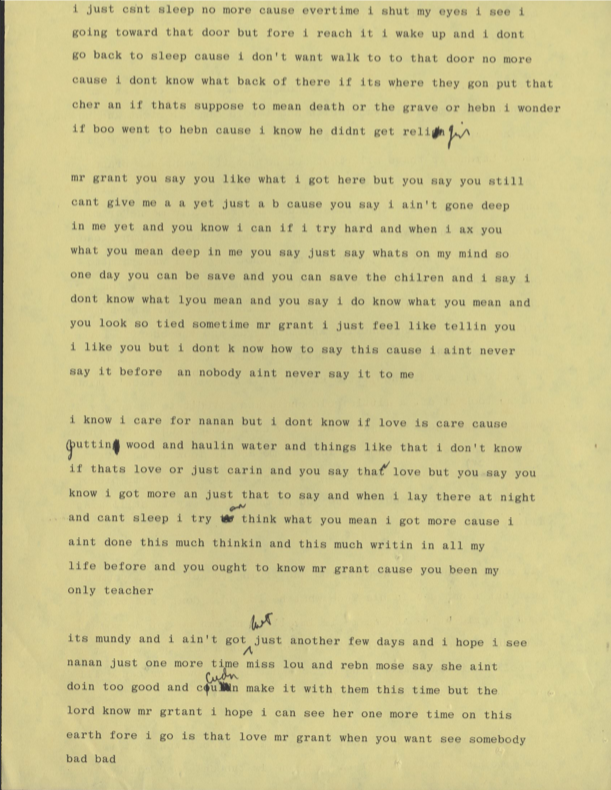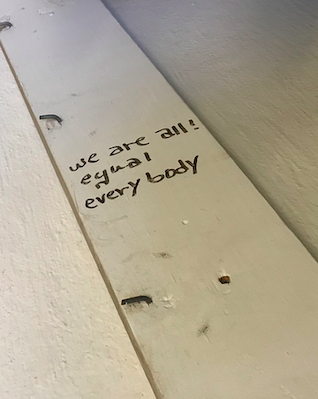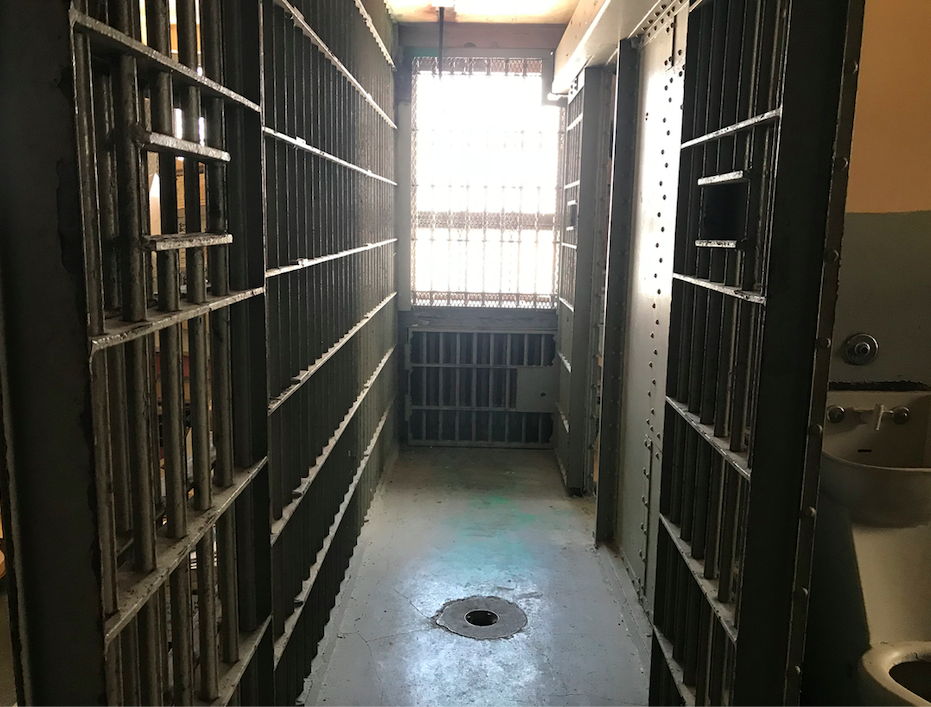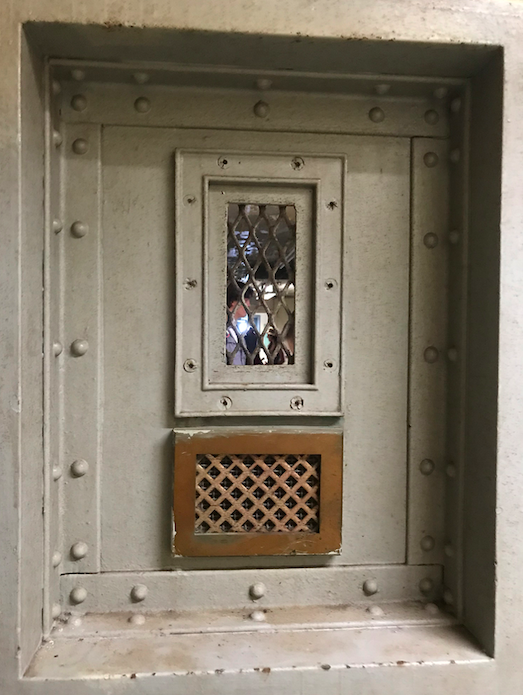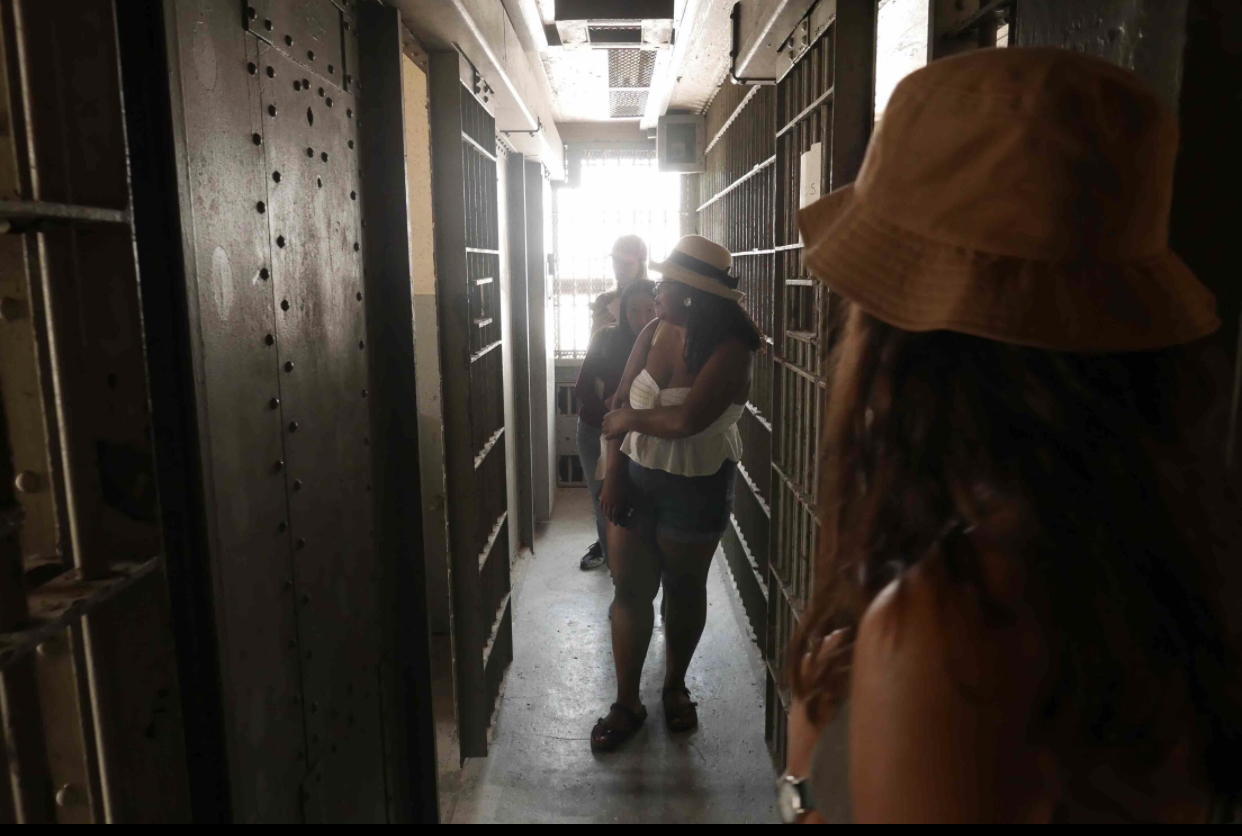After finishing Ernest J. Gaines, A Lesson Before Dying, I can’t help but find myself in a very somber mood. Gaines tells the story of a poor, uneducated black man wrongfully accused of murder after being the only survivor on the scene of the crime. Jefferson, the accused victim, is given the death sentenced and only has six months to live and learn from a black teacher, Grant Wiggins, who is “still tying to find out how a man should live.”
While the story may only be a work of fiction, Gaines touches on a topic that 22% of Americans experience- incarceration. In America, we spend more money and resources housing an inmate than we are willing to put towards giving people an education and fair opportunity at life. When people are said to have done terrible things, we seek justice and punishment quicker than we seek the truth. But what if they never did the crime?
Gaines book has left me thinking of all the people left in the prison system for crimes they did and did not do. It’s such a difficult and heavy topic to decide what we do with the individuals we believe have broken societal laws and expectations. If you commit a crime, does this diminish your humanity and entitle you to a sentence of servitude and absence of freedom? Reading A Lesson Before Dying evoked a strong sense of empathy just as Andrew has said bookpacking with our novels throughout the month would. Of all the novels, I felt the most connected to the literature, setting, and people through reading A Lesson Before Dyingbecause of the amazing opportunities we were offered while visiting in New Roads, Louisiana. As a class, we visited the prison cells that inspired Gaines and his novel, meet Dr. Ernest J. Gaines to discuss his novel with him, toured the plantation land he grew up on, and explored his manuscript archives at the Gaines Center.
As a former avid reader, meeting the author has always been such an important aspect in my love for literature. When you read a book, you interpret the novel as you see fit and make connections that might not have been the intentions of the author. The writing process is something I don’t completely and understand so meeting the author allows you to hear how about how they wrote their novel and the connections between their work and themselves. Meeting Dr. Ernest J. Gaines was a different experienced than meeting my favorite authors. Unlike my favorite authors, Cassandra Clare and Veronica Roth, Dr. Ernest J. Gaines is the author of works that many of us read throughout our education as a part of our curriculums, someone I would have never imagined meeting. And unlike my favorite authors, Dr. Ernest J. Gaines was in his later years in life, meaning I would likely never find myself in his presence again. During our interaction with Dr. Gaines, I kept thinking of how crazy it is that we flew all the way from Los Angeles, picked up A Lesson Before Dying, and found ourselves in the company of the mastermind of a novel that brought so many tears to many our group’s eyes.
Us meeting Dr. Ernest J. Gaines and his wife, Dianne
I couldn’t pass up the opportunity to ask Dr. Gaines for his signature. I now have about 42 signed novels
“And that’s the difference between me and you, boy; that make me the educated one, and you the gump. I know my people. I know what they gone through. I know they done cheated themselves, lied to themselves—hoping that one day all love and trust can come back and help relieve the pain”
Being able to flip through the manuscripts of Dr. Gaines added to this remarkable, once in a life time experience. Some of the Gaines’ work were handwritten on aged, coffee stained paper. The pages were often hard to follow and didn’t have page numbers on them. I wanted to find the handwritten version of a particular quote from the novel between Grant Wiggins and Reverend Ambrose about what it meant to be an educated African American because it paralleled my experience of trying to understand my black culture. Unfortunately, I wasn’t able to find it in the complexity of Gaines’ writing. I did, however, find the handwritten copy of Jefferson’s journal, an emotional section of the novel where Jefferson narrates his final few days of life. One of the most touching parts of the journal was when Jefferson ends with “sincerely Jefferson.” To see that the author scribbled in these beautiful in one of the final drafts of his work gave me a deeper appreciation for the story. I wish I had the opportunity to ask Dr. Gaines and know what went through his mind when he added those words at the end.
The most difficult portion of exploring the world of A Lesson Before Dying was the visit to the jail cells. Reading A Lesson Before Dying and feeling empathic and somber about the system of incarnation is one thing but being in the cells and seeing the harsh conditions of a jail puts everything into prospective and added to the pain I felt. In the cells, there was no AC, there were no windows, and no sunlight unless you went into the enclosed outdoor space used once a week. Instead, there was heat, lack of space, and wasp nests in the corners of the wall. I felt such a sense of loss and hopelessness being in this space. I thought of Jefferson, naturally; but I also thought of the lives of the 22% of Americans who have been here before and all that will might find themselves here later. As Grant says in the novel, “there were too many more who would end up as he did.”
“There were too many more who would end up as he did.”
So now what, I ask myself. Now that I’ve finished this novel, what is the lesson I should make? I watched the sunset along the Mississippi River at the same time I read of Jefferson saying he would never see the sun rise and set again. I felt the tears stream down my face as I looked at the rays of light coming through the clouds. What can the rest of us learn from a story about death, a story that seems almost hopeless? I think the answer is love. A Lesson Before Dying teaches us to love our community, love the people who have sacrificed so much for us, love the fact that we can see the sunrise and the sunset and be grateful for those little things. A Lesson Before Dying teaches us to support one another like Miss Emma and Nannan, place our energy into our relationships like Grant and Vivian, and make our loved ones proud like Jefferson for Nannan. At the end of the day there are so many things out of our control but what we can control is the life we live and the love we give.



